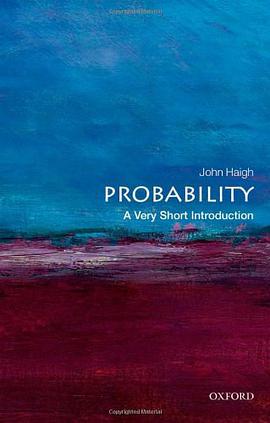
内容简介:
Explores ideas of probability and the different philosophical approaches to it
Provides a brief account of the history of development of probability theory
Considers the work of some of the big players; from Galileo and Pascal to Bayes, Laplace, Poisson, and Markov
Discusses a wide range of applications of probability theory in science, economics, and a variety of other contexts
Part of the bestselling Very Short Introductions series - over five million copies sold worldwide
Making good decisions under conditions of uncertainty - which is the norm - requires a sound appreciation of the way random chance works. As analysis and modelling of most aspects of the world, and all measurement, are necessarily imprecise and involve uncertainties of varying degrees, the understanding and management of probabilities is central to much work in the sciences and economics.
In this Very Short Introduction, John Haigh introduces the ideas of probability and different philosophical approaches to probability, and gives a brief account of the history of development of probability theory, from Galileo and Pascal to Bayes, Laplace, Poisson, and Markov. He describes the basic probability distributions, and goes on to discuss a wide range of applications in science, economics, and a variety of other contexts such as games and betting. He concludes with an intriguing discussion of coincidences and some curious paradoxes.
Readership: General readers interested in popular mathematics. A useful introduction to a fundamentally important topic for students of mathematics and science.
作者简介:
John Haigh, Reader in Statistics, University of Sussex
John Haigh is a mathematics tutor at the University of Sussex and has written many papers on probability. He is the author of three books, including Taking Chances (OUP, 2003).











评论